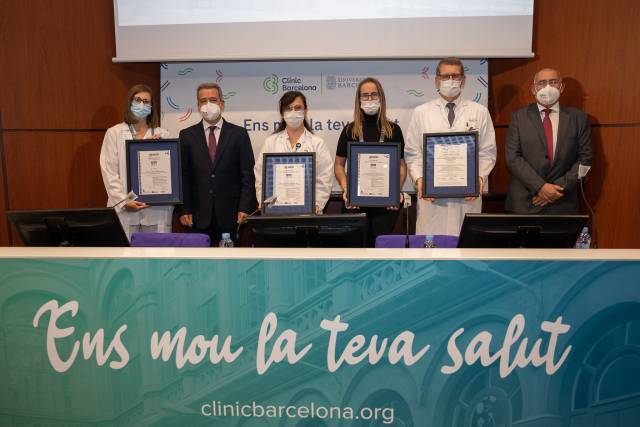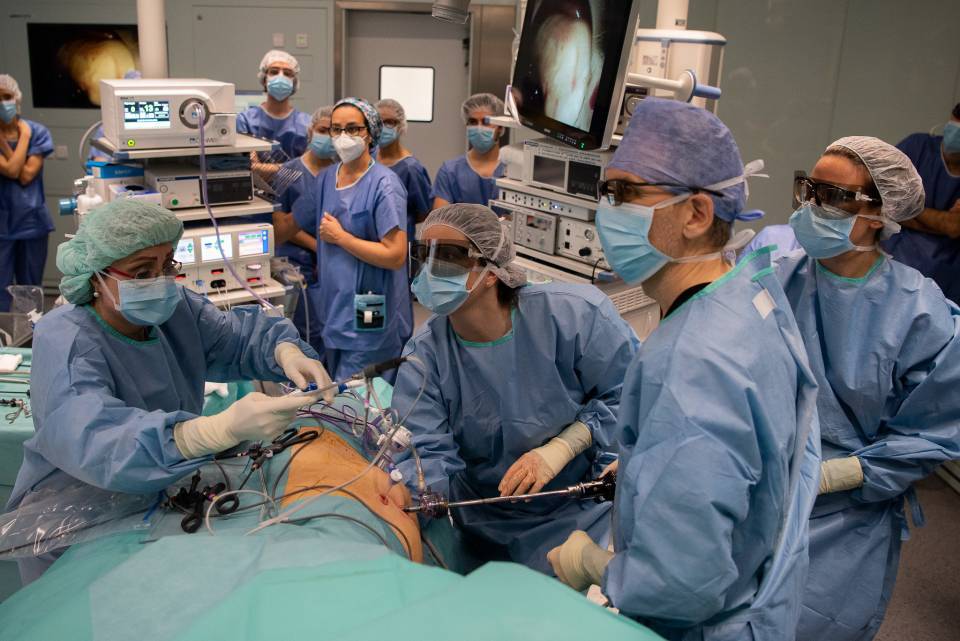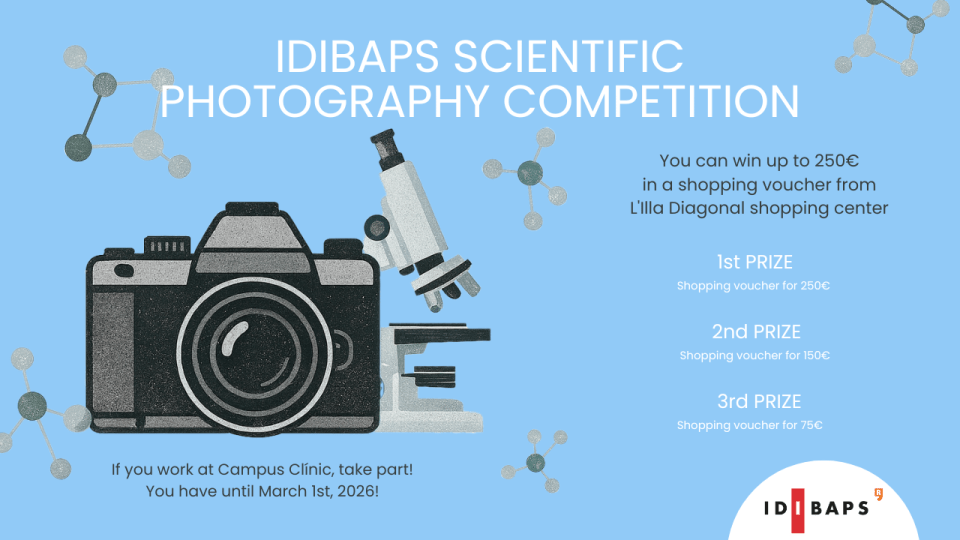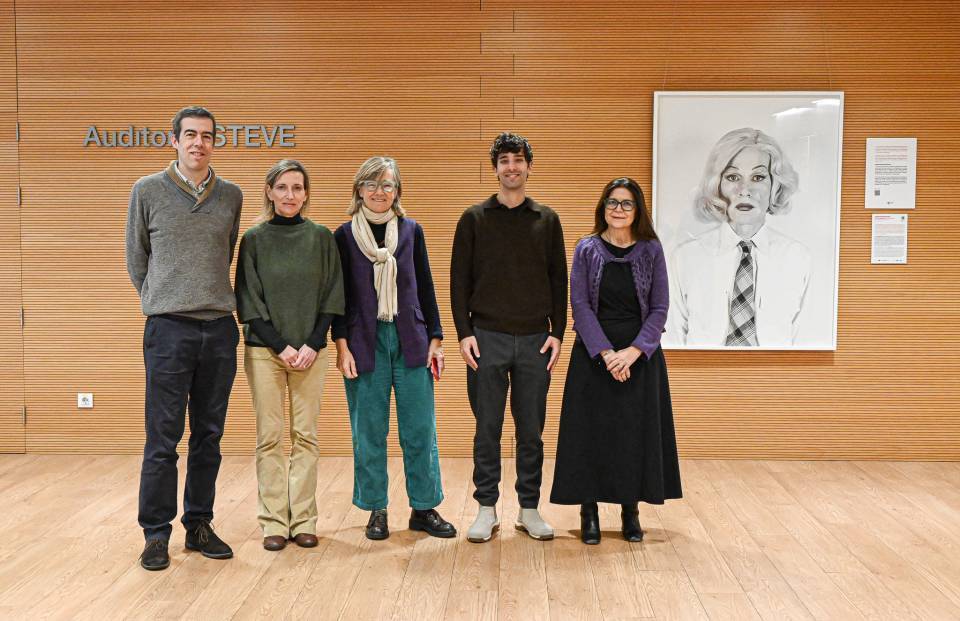The 200 kidney transplants, a unique milestone in Catalonia, were possible thanks to the multidisciplinary work by the Urology Service, led by Dr. Antonio Alcaraz, of the Nephrology Service, led by Dr. Esteban Poch, and of the Kidney Transplant Section, led by Dr. Fritz Diekmann. Also thanks to the help by all the hospital staff involved such as the Transplant Donation and Coordination Section, the nursing staff, assistant nursing care technicians, etc. This figure of 200 transplants, achieved over the course of this year, was confirmed by the Spanish National Transplant Organization (ONT).
The kidney transplant
The kidney transplant is a surgical procedure in which a healthy kidney, obtained from a living or deceased donor, is implanted into a patient with end-stage chronic kidney disease. The organ can be extracted through an incision in the navel or the lower abdomen or, in the case of women, through an incision in the vaginal vault.
The use of robotic surgery in kidney transplants has numerous advantages since, although it takes the same time as open surgery, it minimizes complications, avoids infections in the abdominal wall, and the appearance of hernias, and favours the rapid recovery of the transplanted patient. Robotic surgery in this type of transplant has made it possible to introduce this minimally invasive surgery in fragile patients with end-stage kidney disease.
The Hospital Clínic Kidney Transplant Section, the first in Catalonia to achieve ISO 9001:2015 quality certification

Coinciding with the 200 transplants, the Kidney Transplant Section of the Hospital Clínic Nephrology and Urology Institute (ICNU) of the Hospital Clínic Barcelona has achieved, for the first time in Catalonia, the ISO UNE-EN ISO 9001:2015 certification by AENOR. The certificate was presented in the Farreras Valentí auditorium on Friday 18 November. Dr. Josep Maria Campistol, director general of the Hospital Clínic Barcelona, and Jaume Tort, director of the Department of Health’s Catalan Transplant Organization (OCATT) attended the ceremony.
The working group was made up of kidney transplant specialists from the Nephrology and Urology services, specialists in pancreatic surgery, specialists in anaesthesiology, nurses and assistant nursing care technicians, supported by the Hospital Clínic Barcelona’s Quality and Clinical Safety Management. Other professionals from the service also took part: administrative staff from the different areas and managers of the kidney transplant waiting list, psychologist, social worker, dietitian-nutritionist, cleaning staff, etc.
The ICNU is committed to quality care, in line with the hospital’s tradition, obtaining the first ISO 9001 certification in Haemodialysis (2013), subsequently in Peritoneal Dialysis (2016), and, recently, with the ACERCA Chronic Kidney Disease Consultation accreditation. The certification of the Kidney Transplant Section, with a track record of over 50 years, confirms this stance in favour of continuous improvement.
“The commitment to quality has always been one of the cornerstones of our hospital’s kidney and pancreas transplantation programmes, and with the ISO 9001:2015 accreditation we have been able to take a very important step towards systematizing continuous improvement”, explains Dr. Fritz Diekmann, head of the Kidney Transplant Section.
The Kidney Transplant Section’s UNE-EN ISO 9001:2015 certification includes all the types of transplant that are currently performed: living donor kidney transplant (compatible, incompatible and crossmatch), deceased donor, combined (kidney-pancreas, kidney-liver and heart-kidney), and isolated pancreas transplant. “It has meant teamwork, an opportunity to review the unit’s processes, identifying both the strengths and the weaknesses, proposing actions for improvement”, says Yolanda Amarilla, acting coordinator of the Nephrology and Kidney Transplant Service.
This certification benefits patients by standardizing the commitment to quality, improving communication and accessibility and measuring patient satisfaction. Moreover, added value is also achieved for the professionals providing systematization, greater efficiency and internal communication and the search for objectives that maintain the section's excellence.
The active participation of all the teams has been a strong point, which has been fundamental in achieving improvements in a complex process involving so many professionals.




